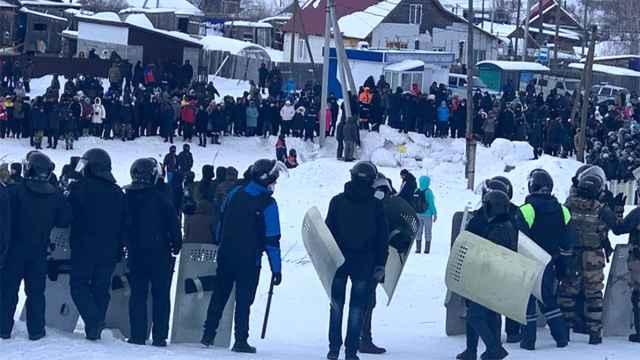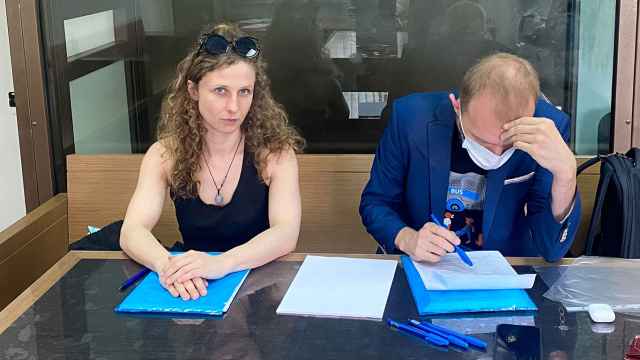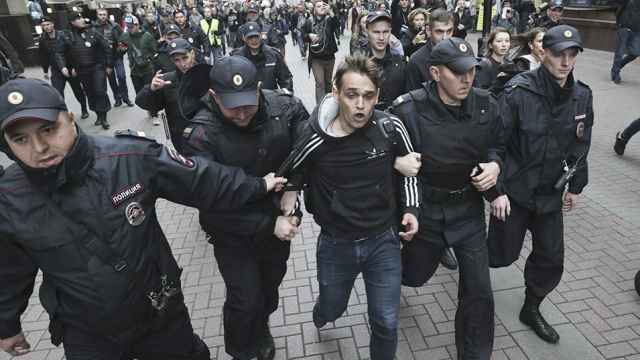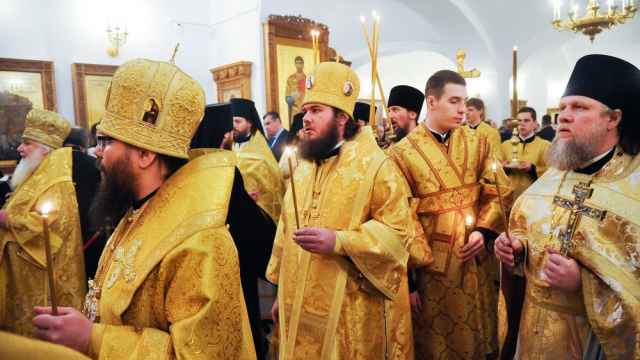A St. Petersburg artist and musician faces up to 10 years in prison for spreading so-called “fake news” about Russia’s war in Ukraine on price tags at a local supermarket.
Alexandra Skochilenko was detained Monday on suspicion of replacing price tags with information about the March 16 air strike on a Mariupol drama theater where civilians were sheltering. Kyiv accused Moscow of war crimes with the strike, while the Russian military blamed Ukrainian far-right militias for the attack.
“The Russian army bombed an art school in Mariupol where about 400 people were hiding from the shelling,” the supermarket price tag attributed to Skochilenko read.
Investigators accuse her of “placing fragments of paper containing deliberately false information about the use of the Russian Armed Forces in places designated for price tags.”
Her lawyer said an unidentified shopper reported Skochilenko to the authorities.
St. Petersburg’s Vasileostrovsky district court ruled Wednesday to place Skochilenko in pre-trial detention until May 31.
If found guilty, the artist faces between five and 10 years in prison.
Skochilenko, 31, denies her guilt.
Russia has criminalized the spread of any information about its invasion of Ukraine that does not come from official sources which reflect Russia’s version of events.
At least 23 Russian and foreign citizens including Skochilenko have been charged with spreading “fake news” about the war, according to human rights lawyers and recent reports of arrests.
The price tag replacement protests, initiated by the Feminist Anti-War Resistance group, have become a popular way for anti-war Russians to speak out amid a near-total ban on public protests.
At least one other person has been convicted for replacing price tags with anti-war messages at a grocery store.
A court in Tula south of Moscow found a woman named O. Valentinova guilty on lesser charges of “discrediting” the Russian military and fined her 49,000 rubles ($600) last week.
A Message from The Moscow Times:
Dear readers,
We are facing unprecedented challenges. Russia's Prosecutor General's Office has designated The Moscow Times as an "undesirable" organization, criminalizing our work and putting our staff at risk of prosecution. This follows our earlier unjust labeling as a "foreign agent."
These actions are direct attempts to silence independent journalism in Russia. The authorities claim our work "discredits the decisions of the Russian leadership." We see things differently: we strive to provide accurate, unbiased reporting on Russia.
We, the journalists of The Moscow Times, refuse to be silenced. But to continue our work, we need your help.
Your support, no matter how small, makes a world of difference. If you can, please support us monthly starting from just $2. It's quick to set up, and every contribution makes a significant impact.
By supporting The Moscow Times, you're defending open, independent journalism in the face of repression. Thank you for standing with us.
Remind me later.






